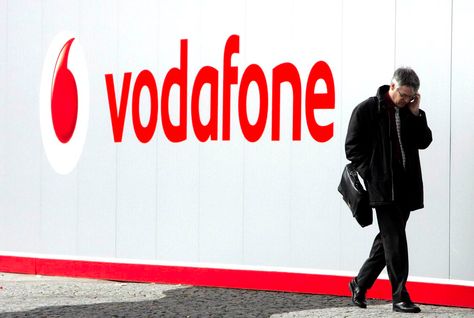Vodafone Consortium To Launch 1,400km Fibre Network In Gulf
Vodafone, Kuwait’s Zain, UAE’s du and Kuwaiti internet service provider Zajil will create the Middle East-Europe Terrestrial System

Britain’s Vodafone and three Gulf telecoms companies have formed a consortium to launch a 1,400km fibre network to meet rising demand for broadband services in the region.
Vodafone, Kuwait’s Zain, du of the UAE and Kuwaiti internet service provider Zajil will create the Middle East-Europe Terrestrial System (MEETS) with the long-term aim of connecting the network overland to Europe.
MEETS will activate a largely dormant fibre-optic network built as part of the 1,400km power grid installed by the Gulf Cooperation Council’s (GCC) interconnection authority. The network runs from Kuwait to Fujairah, an eastern emirate in the UAE on the Gulf of Oman, via Saudi Arabia, Bahrain and Qatar.
The consortium has signed a 15-year rental contract to activate and manage the fibre network. The GCC Interconnection Authority is owned by the six GCC countries.
The network will have estimated capacity of 2,300 gigabytes per second (gbps) and is expected to launch in the first quarter of 2014, the companies said at a news conference in Dubai, adding that the project will cost about $35 million. Total Gulf usage is estimated to be about 500 gbps at present.
“Demand will increase exponentially,” said Osman Sultan, chief executive of du.
Smartphone penetration is particularly high in the Gulf region, where the lack of an efficient fixed fibre network in countries such as Kuwait and Bahrain means that many customers access the Internet primarily via mobile devices rather than through a home subscription.
Zain, parent of Saudi Arabia’s No.3 operator Zain Saudi , will be the landing party in Saudi Arabia, du in the UAE and Vodafone Qatar in its home market, while Zajil will cover Kuwait and Bahrain. Vodafone owns a 23 percent stake in its Qatari unit.
The consortium declined to predict when it would begin work on connecting the network to Europe. This phase of the project will present more challenges with its likely route via Iraq and Turkey.
Fixed-line internet connectivity in Iraq is expensive, unreliable and limited to a few small areas because of a lack of basic infrastructure and deteriorating security.
